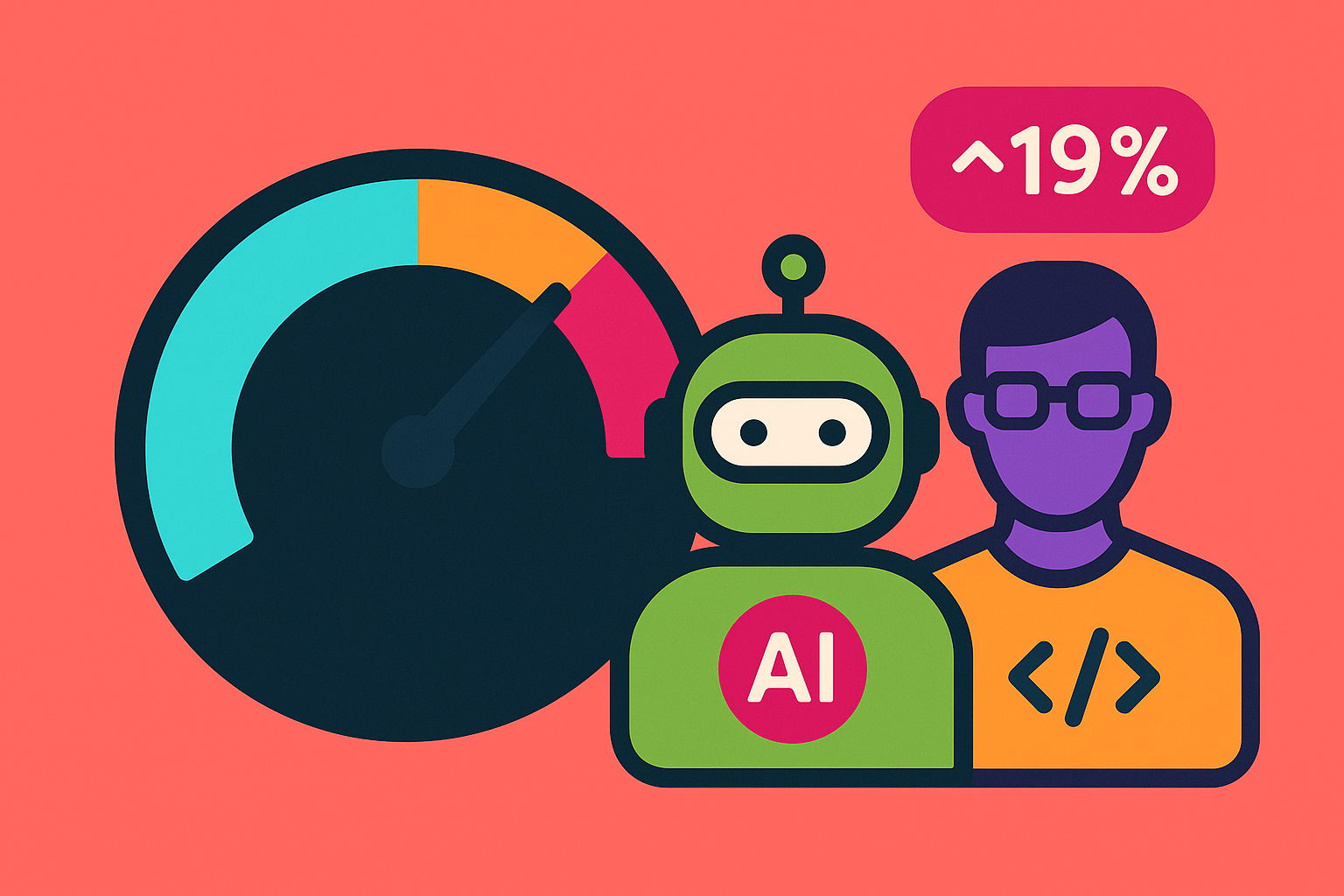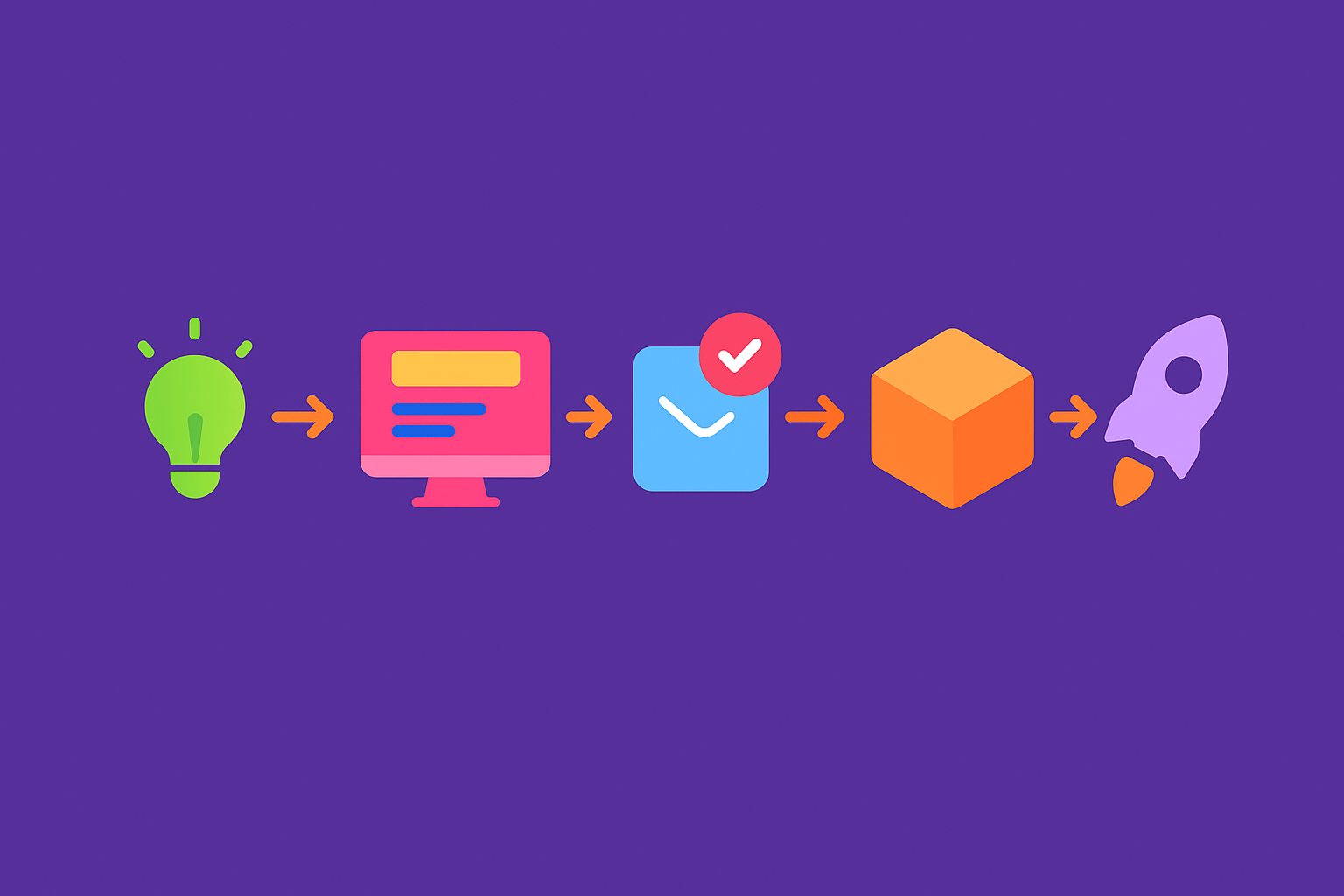Here's something that'll make you spit out your coffee: AI tools actually made experienced developers work 19% slower in a recent study.
Yeah, you read that right. Slower.
Not "a little bit slower." Not "about the same speed." Nearly 20% slower than developers working without AI assistance.
And before you think this was some small-time experiment, this study tracked 16 experienced developers working on real issues from massive open-source repositories—we're talking projects with over 22,000 stars and more than a million lines of code.
The Twist Nobody Expected
Here's where it gets really interesting. These developers thought AI would speed them up by 24%. After they finished their work (taking longer than usual), they still believed AI had made them 20% faster.
They were completely wrong about their own productivity.
Think about that for a second. These aren't beginners. These are people who've been contributing to major projects for years. And they couldn't tell that the shiny new AI tools were actually slowing them down.
So What's Actually Going On?
Before we all throw our AI subscriptions in the trash, let's pump the brakes and look at what this really means.
The study found five factors that likely contributed to the slowdown. The developers weren't using AI wrong. They weren't picking bad tasks. The work they submitted was just as good with or without AI.
The problem? AI tools work great for some things—but not everything.
Think of it like this: If you need to hammer a nail, a power drill isn't going to help you just because it's more advanced. It's the wrong tool for the job.
What This Actually Means for Your Startup
Let's cut through the hype and talk reality.
The Good News:
- AI tools can still be incredibly useful for certain tasks
- Many people across different applications report finding AI helpful for substantial software tasks
- The technology is evolving rapidly—what's true today might not be true in six months
The Reality Check:
- Don't assume AI automatically makes your engineering team faster
- Your experienced developers might think they're faster with AI, even when they're not
- Those impressive AI benchmarks you keep hearing about? They might not translate to real-world work
Where AI Actually Shines (And Where It Doesn't)
The study suggests AI capabilities may be lower in settings with very high quality standards or with many implicit requirements relating to documentation, testing coverage, or code formatting.
Translation? If you're building a serious product where quality matters (and it should), AI might not be the silver bullet you were hoping for.
AI seems to work better for:
- Quick prototypes
- One-off scripts
- Exploring new ideas
- Learning unfamiliar tech stacks
AI struggles more with:
- Large, complex codebases
- Work requiring deep context
- Projects with strict quality standards
- Code that needs thorough testing and documentation
The Bottom Line
Look, AI isn't going away. And it shouldn't. But it's also not magic.
If you're a non-technical founder building a startup, here's what you need to know:
Don't hire fewer engineers because you think AI will fill the gap. Based on this research, that's a recipe for slower progress, not faster.
Don't accept "we'll use AI to speed things up" as a substitute for proper processes. Remember those common mistakes we've talked about—like hiring engineers without proper support staff or thinking every new idea should be built immediately? AI doesn't fix those problems.
Do think of AI as one tool in the toolbox. Not the whole toolbox.
The developers in this study used Cursor with Claude—some of the best AI tools available. And they still got slowed down. That doesn't mean AI is useless. It means we need to be realistic about what it can and can't do.
What Should You Do?
If you're building a tech product:
- Focus on the fundamentals first. Get your requirements documented. Build your support team. Create clear processes.
- Let your team use AI tools—but don't count on massive speed improvements. At least not yet.
- Measure what actually matters. Don't just ask your developers if they feel faster. Track actual delivery times and quality.
- Keep your expectations realistic. AI is improving rapidly, but right now it's best used as an assistant, not a replacement for experienced talent.
The tech world loves hype. But building a successful product requires cutting through that hype and focusing on what actually works. This study is a good reminder that sometimes the flashy new thing isn't the solution to all your problems.
Sometimes you just need good people, clear processes, and realistic expectations.
Building a tech startup and need someone who'll give you straight answers about what works (and what doesn't)? We've helped dozens of founders navigate the real challenges of product development—no hype, just results. Let's talk about your project and figure out the best path forward for your team.










